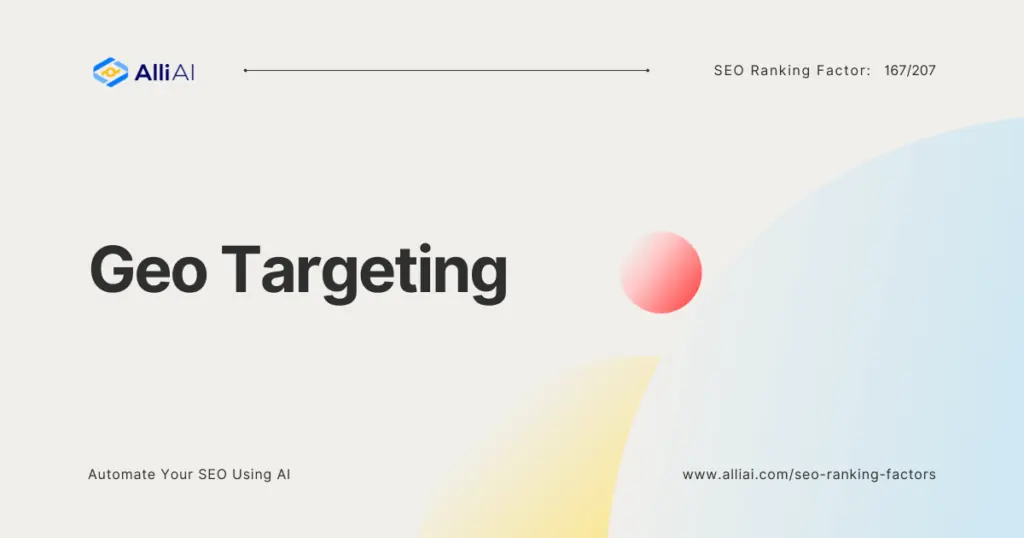Explanation of Geo-Targeting
Geo-Targeting, in essence, is the practice of determining a user’s location through their IP address, Wi-Fi, or GPS data to deliver content specifically suited to their geographical location. Imagine walking into a restaurant and the waiter already knows your favorite dish just because of where you come from; that’s the kind of personalized service geo-targeting aims to replicate in the digital space.
Think of a billboard. A traditional billboard on a highway displays the same message to everyone passing by, regardless of where they come from or where they’re heading. Geo-targeting, however, turns that billboard into a dynamic display, changing its message for each viewer based on their exact location and likely destination, like a digital signpost pointing different directions for passerby from different places.
Why is Geo-Targeting important in SEO?
Geo-targeting is crucial in SEO because it aligns website content with the specific needs and preferences of a local audience, thereby improving user experience. This increased satisfaction leads to higher engagement rates, lower bounce rates, and ultimately, a stronger SEO position. It ensures that businesses don’t just shout into the void but speak directly to the audience they wish to engage, making every marketing dollar count more effectively.
How Geo-Targeting affects SEO
Embracing geo-targeting within SEO strategies profoundly impacts how content resonates with different audiences, directly influencing a site’s visibility and search engine ranking. For instance:
1. Local Search Visibility: Google reports that 46% of all searches have a local intent. Websites optimized with geo-targeting are more likely to appear in local search results, attracting a targeted audience more likely to convert.
2. Improved User Experience: By presenting content, products, and services that meet the immediate needs and interests of a local audience, websites can significantly improve user engagement metrics, an important factor in Google’s ranking algorithms.
3. Enhanced Conversion Rates: A study by Google revealed that 76% of local searches result in a phone call. Tailoring your SEO strategy with geo-targeting not only boosts visibility but also drives actions that lead to direct business benefits.
FAQ
1. Is Geo-Targeting only beneficial for local businesses?
No, geo-targeting is not reserved exclusively for local businesses. While it’s incredibly beneficial for local SEO, multinational companies also use geo-targeting to tailor messaging and offers to various regions or countries, enhancing user experience on a global scale.
2. Can Geo-Targeting impact the loading speed of my website?
Technically, yes. Implementing geo-targeting requires additional scripts and redirects that could impact loading times. However, the effect is usually minimal and can be mitigated with proper website optimization techniques.
3. How do I implement Geo-Targeting on my website?
Implementing geo-targeting involves a few steps:
– Detecting the user’s location, typically through IP address
– Segmenting your content by location
– Serving the relevant content to each user based on their geographical data
This can be achieved through specialized SEO tools and plugins, or by custom-developing features for more complex requirements.
Conclusion
Geo-Targeting is not just a trend in the SEO realm; it’s a foundational pillar for businesses aiming to carve out significant online visibility in their relevant locales. By focusing on geographical targeting, companies can deliver more personalized, impactful content that resonates with their audience, leading to better engagement, conversion, and, ultimately, SEO performance. As the digital landscape continues to evolve, the importance of geo-targeting within an SEO strategy is only set to increase, making it an essential tool in every marketer’s toolkit. Whether you’re a local business looking to dominate your local market or a global brand aiming to connect better with regional audiences, geo-targeting can significantly refine your approach and help you achieve your online visibility goals.






